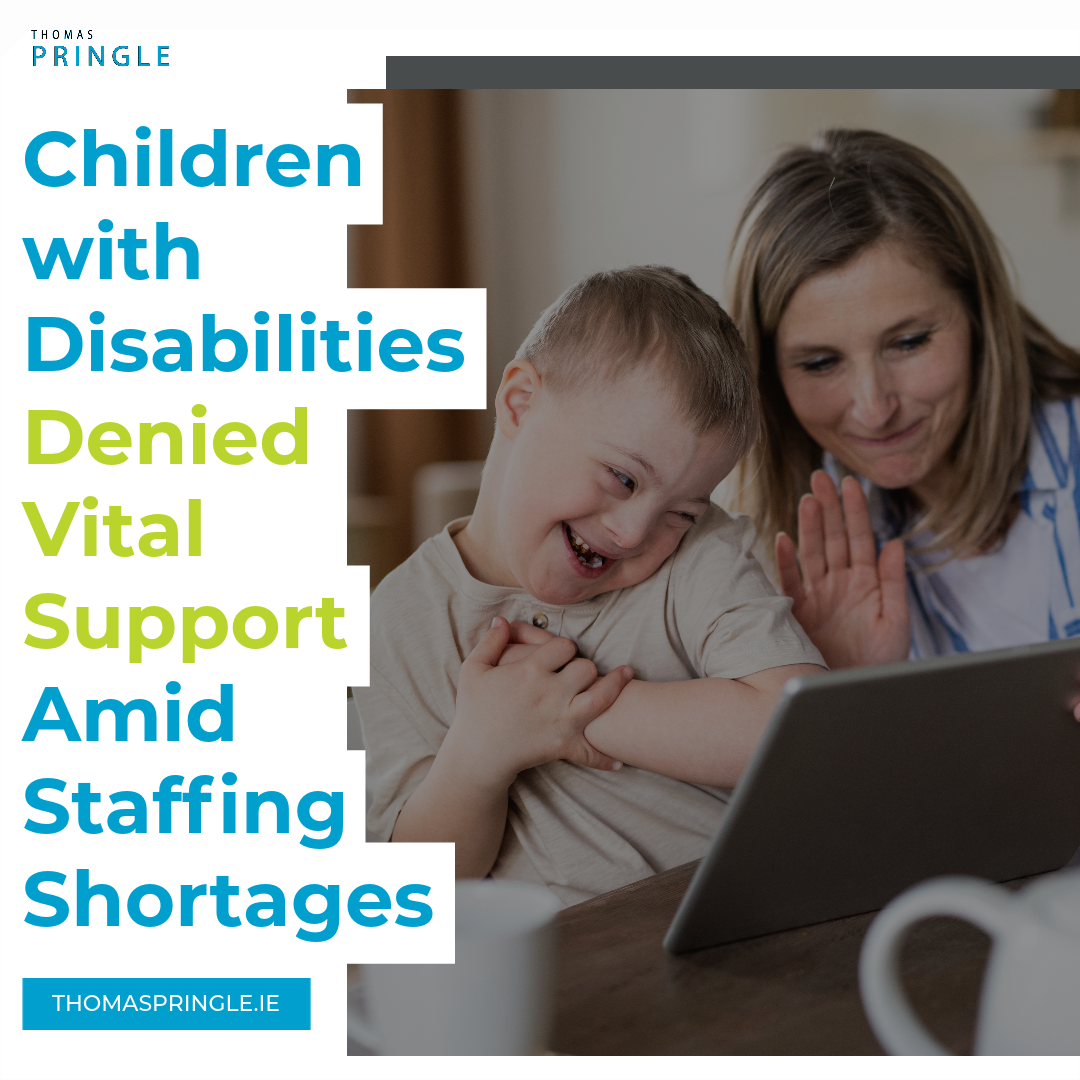- Pringle: We need a policy that recognises the importance of inshore fishing
- Pringle: Disabled people and carers face crisis of State neglect
- Pringle: Failed FF/FG housing policies forcing people to put their lives on hold
- Pringle welcomes Donegal council motion on Occupied Territories Bill: ‘We cannot stand by in the face of genocide’
Pringle says recruitment issues in children’s disability services are leaving children behind
- Updated: 20th October 2023

Independent TD for Donegal, Thomas Pringle, said the health service is “on its knees”, saying that recruitment issues in children’s disability services are leaving children behind.
Addressing the Dáil on Thursday, Deputy Pringle said: “There are serious recruitment issues with children’s disability services in my constituency and I know it’s throughout the country as well. Children’s Disability Network Teams (CDNTs) are experiencing very high vacancy and turnover rates. At the beginning of September, the overall national vacancy rate was 34%. In Donegal the vacancy rate was over 40% in the CDNT areas of Donegal North, Inishowen & Donegal East and Sligo/South Donegal.”
A new parents network in Donegal, established last month, carried out significant research into the experiences of parents of children with disabilities and their findings are “very troubling”, he said.
Deputy Pringle said: “In a survey of over 300 parents in Inishowen & Donegal East, Donegal North, Donegal South West, Donegal South/Sligo, 87% responded that their child’s needs were not being met by the CDNTs.”
The deputy raised the issue on Thursday during Statements on investment in health care.
Deputy Pringle said: “The Special Needs Parents Network outlined the ‘huge financial burden from the lack of service provision from the CDNTs’, with parents feeling like they have no other option but to access private treatment, especially parents of children with complex disabilities. It is absolutely essential that children are getting the therapy they need, as those who don’t can experience significant regression and pain. No parent and no child should be forced to experience this.
“Yet we are forcing them into this situation because the HSE will not allocate funding for children availing of private services. So we’re left in a situation that a service is only available to those who can afford it and that is very unfair on disabled people as well.”
He said for private services to replace for public services is never a solution, and added: “There has to be something happening in the meantime because children are being left behind and children are being failed.”
The deputy said one way to address recruitment would be to ensure that graduate doctors in the North of Ireland are facilitated in registering in the South.
Deputy Pringle said: “This is a massive obstacle for Northern graduates and forces many overseas. And the reality is that because of a timing issue graduates from the North can’t complete their training in the South because basically their results don’t come out in time for the South. That’s shocking.
“As well as this, 83% of parents in Donegal felt that it would be helpful to extend the Cross Border Health Initiative to incorporate disability services. And for counties like Donegal and along the border area, that would make a difference,” he said.
The deputy said: “Again it’s a temporary solution, it’s a solution that would only last for a short period, hopefully, so that recruitment could take place. The solutions are there but I think the Government is failing to implement them, and in turn they are failing disabled people in this country.”
Deputy Pringle said a recent meeting between the network and the HSE also shows a way forward.
The deputy said: “I know another meeting will be coming up in about six or eight weeks or so where actual progress will be shown and I hope that there will be progress made there.
“And perhaps maybe that should be a model of showing how things could work across the country where the people are working together with the families that need the services. But they’re also being accountable in allowing themselves to come back to another meeting to show whether they’re making progress.”



